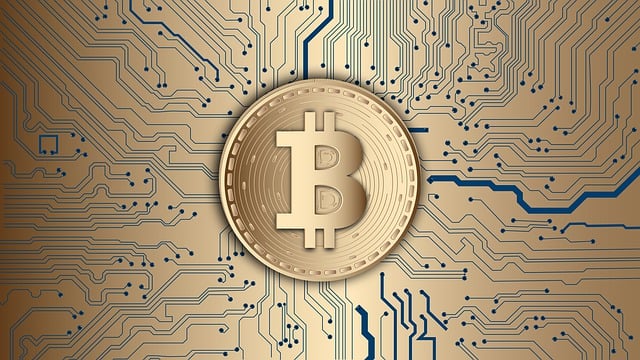Decentralized Finance (DeFi), powered by blockchain technology, aims to democratize financial services by eliminating intermediaries. While offering enhanced transparency, security, and accessibility through smart contracts, DeFi faces significant regulatory challenges in areas like anti-money laundering (AML), know-your-customer (KYC) compliance, consumer protection, and maintaining market stability. Balancing these factors is crucial for fostering a healthy, inclusive financial environment that leverages blockchain's potential without compromising security or legal frameworks, particularly as global regulatory perspectives on DeFi vary widely. Effective collaboration between regulators and developers is essential to navigating these challenges and ensuring DeFi's sustainable growth.
“Decentralized finance (DeFi) is reshaping the global financial landscape, offering a borderless, innovative alternative to traditional banking. However, as DeFi’s popularity soars, regulatory challenges emerge, creating an uncharted territory for policymakers. This article explores the transformative power of blockchain technology in finance through a comprehensive lens. We delve into the rise of DeFi, its global impact, and the intricate web of regulatory considerations. By examining these aspects, we aim to provide insights into navigating the present challenges and fostering sustainable growth in this disruptive financial sector.”
- Understanding Decentralized Finance (DeFi): Unlocking the Potential of a Borderless Financial System
- The Rise of DeFi: How Blockchain Technology is Transforming Finance
- Regulatory Challenges in DeFi: Navigating an Uncharted Territory
- Global Perspectives on DeFi Regulation: A Comparative Study
- The Impact of Regulatory Changes on DeFi Adoption and Innovation
- Exploring Solutions: Enhancing DeFi's Regulatory Framework for Sustainability
Understanding Decentralized Finance (DeFi): Unlocking the Potential of a Borderless Financial System

Decentralized Finance (DeFi) represents a revolutionary concept in the financial world, aiming to democratize access to various economic services by eliminating traditional intermediaries like banks. This borderless financial system operates on blockchain technology, ensuring transparency, security, and accessibility. DeFi offers users direct control over their funds through smart contracts, fostering a peer-to-peer exchange environment. The potential of DeFi is immense, promising to disrupt the status quo and create opportunities for individuals worldwide, especially those underserved by traditional banking systems.
However, as DeFi gains traction, it also faces significant regulatory challenges. The decentralized nature of this financial ecosystem presents unique complexities for authorities striving to maintain stability and protect investors. Regulatory bodies are grappling with issues like anti-money laundering (AML), know-your-customer (KYC) compliance, and ensuring consumer protection while preserving the innovative spirit of DeFi. Balancing these factors is crucial to fostering a healthy and inclusive financial environment that leverages the benefits of blockchain technology without compromising security or legal frameworks.
The Rise of DeFi: How Blockchain Technology is Transforming Finance

The rise of decentralized finance (DeFi) is a testament to the transformative power of blockchain technology in the financial sector. By removing intermediaries like banks, DeFi platforms leverage smart contracts to enable peer-to-peer transactions, fostering a more inclusive and accessible financial ecosystem. This innovative approach has garnered significant attention, particularly among folks seeking greater control over their assets and looking to navigate regulatory challenges traditionally associated with centralized finance.
Blockchain’s inherent transparency and security have revolutionized the way financial services are delivered. DeFi applications offer a wide range of products, from lending and borrowing to trading and yield farming, all operating on public, permissionless blockchains. While this promises enhanced efficiency and lower costs, it also presents regulatory hurdles. The decentralized nature of these systems can make it difficult for authorities to oversee and enforce traditional financial regulations, creating a complex web of challenges that must be addressed to ensure the sustainable growth of DeFi.
Regulatory Challenges in DeFi: Navigating an Uncharted Territory

The decentralized nature of decentralized finance (DeFi) presents unique regulatory challenges that traditional financial frameworks struggle to address. As DeFi continues to gain traction, regulators worldwide are facing an uncharted territory, forced to balance the benefits of innovation with consumer protection and market stability. The absence of centralized authorities in DeFi makes it difficult to implement conventional regulatory measures such as licensing, oversight, and fraud prevention.
These challenges are multifaceted. First, there’s the issue of jurisdiction: Since DeFi operates globally and across borders, determining which country’s laws apply can be complex. Additionally, the fast-paced evolution of DeFi protocols and applications makes it hard for regulators to keep up, leaving gaps in understanding and oversight. Furthermore, concerns around market manipulation, security vulnerabilities, and consumer protection in decentralized exchanges and lending platforms demand innovative solutions that respect the core principles of DeFi while mitigating risks.
Global Perspectives on DeFi Regulation: A Comparative Study

The global landscape of decentralized finance (DeFi) is rapidly evolving, presenting both opportunities and unique challenges. As DeFi gains traction, regulatory bodies worldwide are grappling with how to approach this novel financial system. A comparative study reveals diverse perspectives on DeFi regulation across jurisdictions, underscoring the need for a nuanced understanding of this technology’s complexities.
While some countries embrace DeFi as a driver of innovation, others remain cautious due to concerns related to consumer protection, market integrity, and potential systemic risks. This divergence in approaches highlights the challenges of applying traditional regulatory frameworks to decentralized protocols. The study compares regulatory strategies, focusing on license requirements, oversight mechanisms, and compliance expectations, offering insights into how different global markets are navigating DeFi’s regulatory challenges.
The Impact of Regulatory Changes on DeFi Adoption and Innovation

The landscape of decentralized finance (DeFi) is constantly evolving, with its growth and adoption significantly influenced by regulatory changes worldwide. As regulators grapple with the unique challenges posed by DeFi, their decisions can either foster or hinder innovation in this space. Strict regulations may provide a layer of protection for investors but could also stifle the very nature of DeFi’s decentralized and open-source model, which relies on community-driven development and participation. On the other hand, progressive regulatory frameworks encourage the sector’s growth by facilitating access to capital markets while ensuring consumer protection.
Navigating these regulatory challenges is crucial for DeFi’s long-term sustainability. Regulatory clarity enables developers and investors to explore new opportunities without legal uncertainties. It encourages the creation of more advanced DeFi protocols and products, fostering a vibrant ecosystem. Conversely, ambiguous or overly restrictive regulations may drive innovation underground, creating shadow banking systems that operate outside the scope of traditional oversight, potentially leading to increased risks for users and market instability.
Exploring Solutions: Enhancing DeFi's Regulatory Framework for Sustainability

The world of decentralized finance (DeFi) has experienced tremendous growth, attracting users with its promise of open access to financial services. However, this rapid expansion also highlights the critical need for a robust regulatory framework. As DeFi continues to evolve, navigating legal and operational challenges becomes increasingly complex. Addressing these issues is essential to ensure the sustainability and stability of the ecosystem.
One key aspect is to foster collaboration between regulators and DeFi developers. By engaging in open dialogue, they can collectively craft regulations that promote innovation while protecting users. This involves designing guidelines tailored to DeFi’s unique characteristics, such as smart contracts and blockchain technology. Enhancing regulatory oversight will not only mitigate risks but also encourage further investment and adoption of DeFi platforms, ultimately shaping a more secure and inclusive financial future.
Decentralized finance (DeFi) has the potential to revolutionize global financial systems by offering borderless, transparent, and accessible services. However, its rapid growth presents significant regulatory challenges that require careful navigation. This article has explored these challenges, from understanding DeFi’s foundational blockchain technology to examining global perspectives on regulation. As regulatory frameworks evolve, it is crucial to enhance these structures to foster sustainable DeFi adoption and innovation while mitigating potential risks. By learning from comparative studies and adapting solutions, regulators can unlock DeFi’s full potential, ensuring a secure and prosperous financial future for all.
